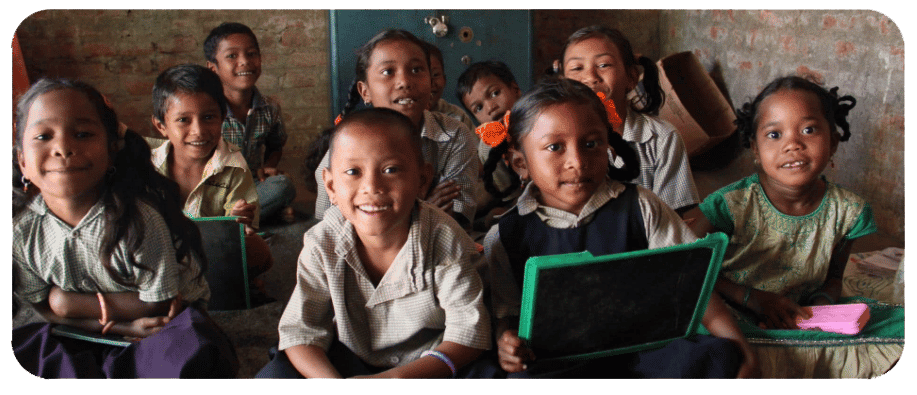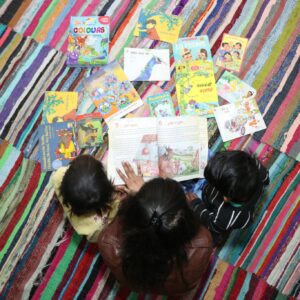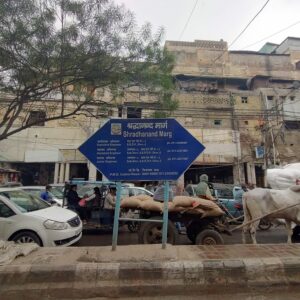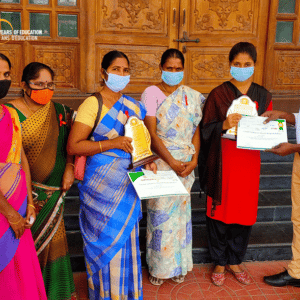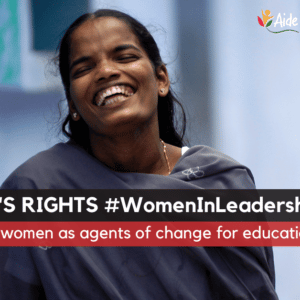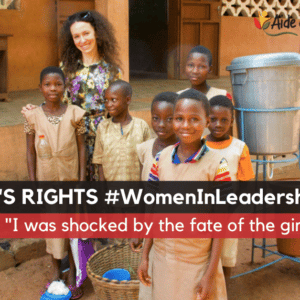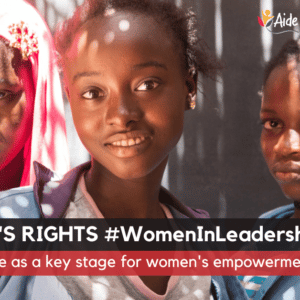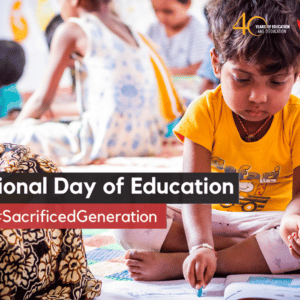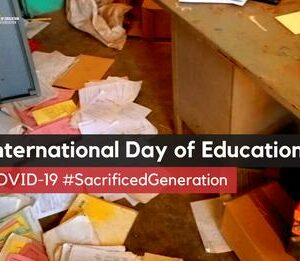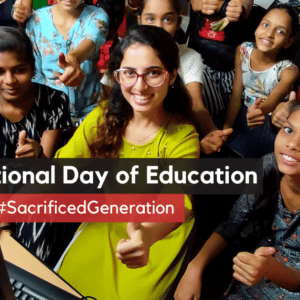Without adequate education on menstruation, the arrival of a girl’s period can cause fear, distress, shame and uncomfort as well as contribute to low school attendance among adolescent girls, an issue that Aide et Action is addressing through education.
In Benin, West Africa, third grade student Deborah was mocked by her classmates for having period blood stains on her clothes and preferred to skip school during her period to avoid the embarrassment and shame it brought. “When my khaki dress, got stained, my classmates pointed fingers at me and I felt ashamed,” explains Deborah. “Since then, I preferred to stay home until my period was over”.
Sadly, Deborah is not alone. According to the World Bank, one in ten girls in Sub-Saharan Africa skip school during their menstrual cycle which amounts to missing almost 20 percent of the school year. To tackle the issue, , Aide et Action is supporting education on menstrual hygiene management to better prepare female students and their teachers and parents on how to deal with periods and keep girls in school.
Breaking the taboo within societies
In general, sex education in many African countries can be a taboo subject, particularly in rural areas where it is still unacceptable for parents to discuss sexuality topics with their children. This is why Aide et Action introduced the component of managing girls’ periods through two of our projects: the Hygiene and Sanitation Improvement Project in Schools, supported by the Claudine Talon Foundation, and the Education Quality Improvement Project in partnership with UNICEF.
“Dealing with periods is a taboo subject in families,” explains Hortense Saka, director of Adjarra Centre, a state primary school in Benin. According to Saka, many teenage girls receive no information from their parents on the changes that puberty brings and their periods arrive as a surprise leaving them ill prepared on how to cope. “We came across many difficulties at the beginning because of the social education the girls received. Some say their parents don’t even let them tell someone they have had their period.
Our projects aim to break the taboos surrounding this crucial subject, presenting menstruation as a natural and healthy milestone in a girl’s development and not something to be feared or ashamed of.
School infrastructure
A survey on menstrual hygiene management in schools in the communes of Ajarra, Avrankou and Porto-Novo, in Benin, revealed that about 15.2% of girls missed classes because of mockery from peers (29%) and pain in the lower abdomen (69%). Compounding the problem is also poor school instructure such as separate toilets for girls.
Without separate toilets (with doors that safely close) to ensure privacy, without a means to dispose of used sanitary products and without water to wash hands, girls can face challenges in maintaining their menstrual hygiene in a safety, dignity, and privacy in schools resulting in absenteeism during their menstrual cycle..
Our project is supporting the construction of separate toilets for girls and making sure they’re also accessible for girls with disabilities ) to ensure education for all.
Menstrual hygiene education
At the heart of our work on menstrual hygiene education is providing girls with appropriate support and education from professionals to ensure they understand their menstrual cycle and have access to menstrual hygiene products. To date, we have distributed 640 sanitary pad kits to 325 girls across 50 schools in Benin. As a result, students like Deborah are better informed and counselled on both menstruation and good practices.
Deborah used to take scraps of fabric to use as a loincloth during her period but since receiving education and support from Aide et Action has received reusable, washable pads.
“The training on washable hygienic pads was very beneficial to me,” explains Deborah. “Today, thanks to these pads, I always attend classes, even during my period, and I am also comfortable during sports activities.”
In partnership with local organisations, we have also trained project staff/referral persons on how to refer girls in need to local health clinics for checkups and examinations and how to approach and share information with parents so they too can make appropriate arrangements for their daughters. These referral persons also provide advice on general menstrual hygiene management. To ensure the sustainability of the project and to promote behaviour change, they are also training motherson the importance of menstrual hygiene management and how to support their daughters.
Through our varied approach, we are supporting girls like Deborah to stay in school. As we mark Menstrual Hygiene Day on 28 May 2021 we’d like to highlight the important role education plays in reducing inequalities.


